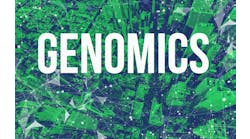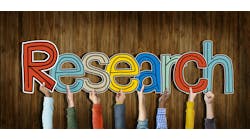All of Us Research Program Begins Returning Genetics Results to Participants
The National Institutes of Health’s (NIH) All of Us Research Program has begun to return genetic results to participants who have donated biosamples for research.
Officials say that this reflects the program’s priority to give back information to its research volunteers. Initially, participants can choose to receive information about their genetic ancestry and traits, with health-related results available at a later date.
The All of Us Research Program is working to build a diverse community of 1 million or more participant partners across the U.S. to help researchers learn more about how genetics, environment and lifestyle factors affect health outcomes. Participants share information in a variety of ways, including surveys, electronic health records (EHRs), biosamples (blood, urine and/or saliva) and more. Data is stripped of personal identifiers and made available for research through the All of Us Research Hub, according to officials at NIH.
All of Us teamed up with a network of awardees across the country to support this work, including the health technology company Color, to return the personalized results on genetic ancestry and traits, and a set of genome centers to generate the genetic data: Baylor College of Medicine, the Broad Institute and the Northwest Genomics Center at the University of Washington, alongside their partners.
The program's genetic analyses include both whole genome sequencing and genotyping. Whole genome sequencing focuses on the more than 3 billion base pairs in the human genome, while genotyping looks at millions of genetic variants focused on people’s most common genetic differences.
To return genetic information, the program has developed what officials call “a robust informed consent process, giving participants information and choice about whether or not to receive results and which results they want to get back.” The program also provides access to genetic counselors to help answer questions from participants and their healthcare providers.
Program leaders say they’re committed to ensuring that participants have access to their own information, and many participants have expressed a strong desire to understand what their DNA can tell them. “We’re changing the paradigm for research,” said Josh Denny, M.D., All of Us’s chief executive officer. “Participants are our most important partners in this effort, and we know many of them are eager to get their genetic results and learn about the science they’re making possible. We’re working to provide that valuable information in a responsible way.”
All of Us is taking a phased approach to the return of genetic results and will offer additional results over time. In about a year, the program plans to begin offering participants the option to receive information about how their DNA may affect their body’s response to certain types of medicines, and about genetic variants associated with the increased risk of certain diseases, based on guidelines of the American College of Medical Genetics and Genomics. Participants will receive information back as their DNA samples are processed, so not everyone will receive information immediately.
Since All of Us opened enrollment nationwide in 2018, more than 270,000 people have contributed biosamples and more than 80 percent come from communities that are historically underrepresented in biomedical research. These include racial and ethnic minorities, sexual and gender minorities and other groups.
“We need programs like All of Us to build diverse datasets so that research findings ultimately benefit everyone,” said Brad Ozenberger, Ph.D., All of Us’s genomics director. “Too many groups have been left out of research in the past, so much of what we know about genomics is based mainly on people of European ancestry. And often, genomic data are explored without critical context like environment, economics and other social determinants of health. We’re trying to help change that, enabling the entire research community to help fill in these knowledge gaps.”


